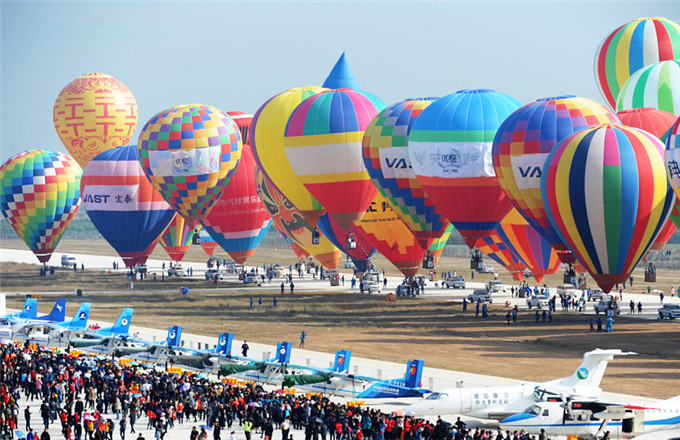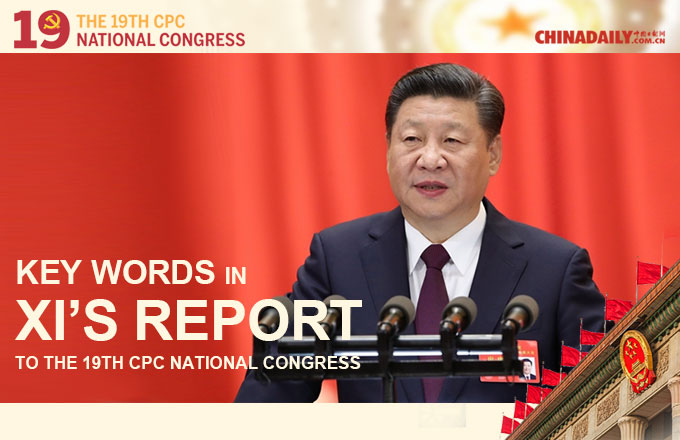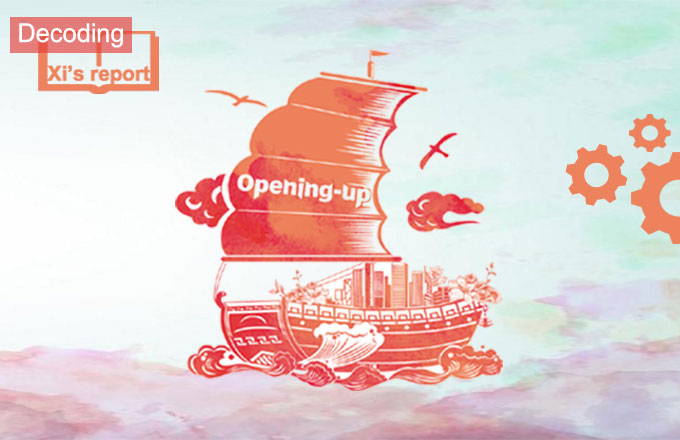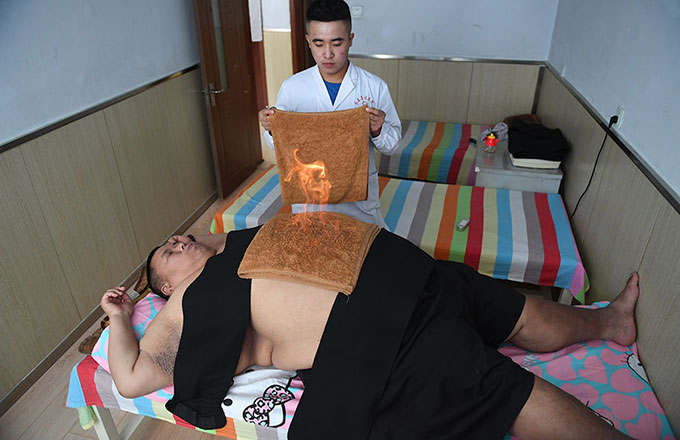Efforts to boost Yangtze region, data disclosure
Regulations to eradicate tour guides' bad behavior
A new regulation on tour guide management will take effect on Jan 1, according to the China National Tourism Administration.
The regulation relates to the 35th provision of the Law on Tourism and clarifies that guides are prohibited from 11 forms of misbehavior, including arbitrarily changing routes or itineraries and forcing tourists to buy souvenirs or services between destinations.
The regulation states rule-breakers face fines of up to 20,000 yuan ($3,000) and could have their licenses revoked.
Meanwhile, digital tour guide licenses have been adopted nationwide, replacing physical licenses.
More information on service quality to be disclosed
The General Administration of Quality Supervision, Inspection and Quarantine and 13 other government departments, including the Ministry of Civil Affairs and the National Development and Reform Commission, have made joint efforts to promote information disclosure on service quality. They have released a regulation on the disclosure of service quality information as well as a guideline on the assessment of service quality.
Neither document is compulsory, but they are expected to advance disclosure of information and quality grading in fields such as railways, commerce, civil aviation, healthcare, tourism and the banking sector.
Ministry releases Yangtze regional development plan
The Ministry of Commerce has drawn up a four-year plan to develop markets in the middle reaches of the Yangtze River.
It aims to build the area as a vital logistics hub for trade, taking advantage of the transportation network connecting Hubei, Hunan and Jiangxi provinces, as well as opportunities brought by the Belt and Road Initiative, the Yangtze River Economic Belt and other major projects.
Urban and rural consumption will substantially increase as the area modernizes, and by 2020, total retail sales of consumer goods are expected to hit 5 trillion yuan, an average annual rise of 10 percent, according to the plan.
Enterprises in the region should also become more competitive in a much-improved business environment, with the region's trade volume forecast to reach 5.3 trillion yuan, up by 15 percent a year, while each of 200 logistics companies is set to have a sales volume of 1 billion yuan per annum.
The plan represents the first time the ministry has released a cross-province blueprint for logistics development, and it aims to have a strong impact on promoting the Yangtze River Economic Belt and the construction of city clusters in the river's middle reaches.
Standard text revised for construction contracts
The Ministry of Housing and Urban-Rural Development and the State Administration for Industry and Commerce have revised the standard text for construction project contracts.
The revised text applies to contracts for housing projects, civil engineering, pipeline construction, equipment installment, and decoration.
Nearly 11m jobs created in urban areas, govt data shows
Some 10.97 million jobs were created in urban areas across China from January to September, up by 300,000 on the same period last year, according to the Ministry of Human Resources and Social Security.
The authority has predicted that this year's target to create 11 million jobs will be reached soon.
Guideline to promote practical courses for school students
The Ministry of Education has released a guideline on comprehensive practical courses for primary, middle and high school students. Courses should be managed by local authorities, with the content mainly developed by schools, the document states. It requires primary schools to dedicate at least one class hour a week to practical learning in the first and second grades, and at least two hours a week until the final grade in high school.
Management of online drugs, equipment sales tightened
A supervision system will be established to oversee online medicine sales and service providers for medical equipment trading, according to the China Food and Drug Administration.
The agency said online and offline trading should be treated equally: Online platforms for medicine sellers should be supervised by local governments, while platform administrators should fulfill their responsibilities to help authorities review products, trades and other data.
Local food and drug administrations should make full use of channels such as government websites and social media to publicize the risks in purchasing medicines and medical equipment online.
Complaints should be submitted online or via phone hotlines, and violations should be dealt with in a timely way, with immediate feedback given to complainants, the administration said.






















